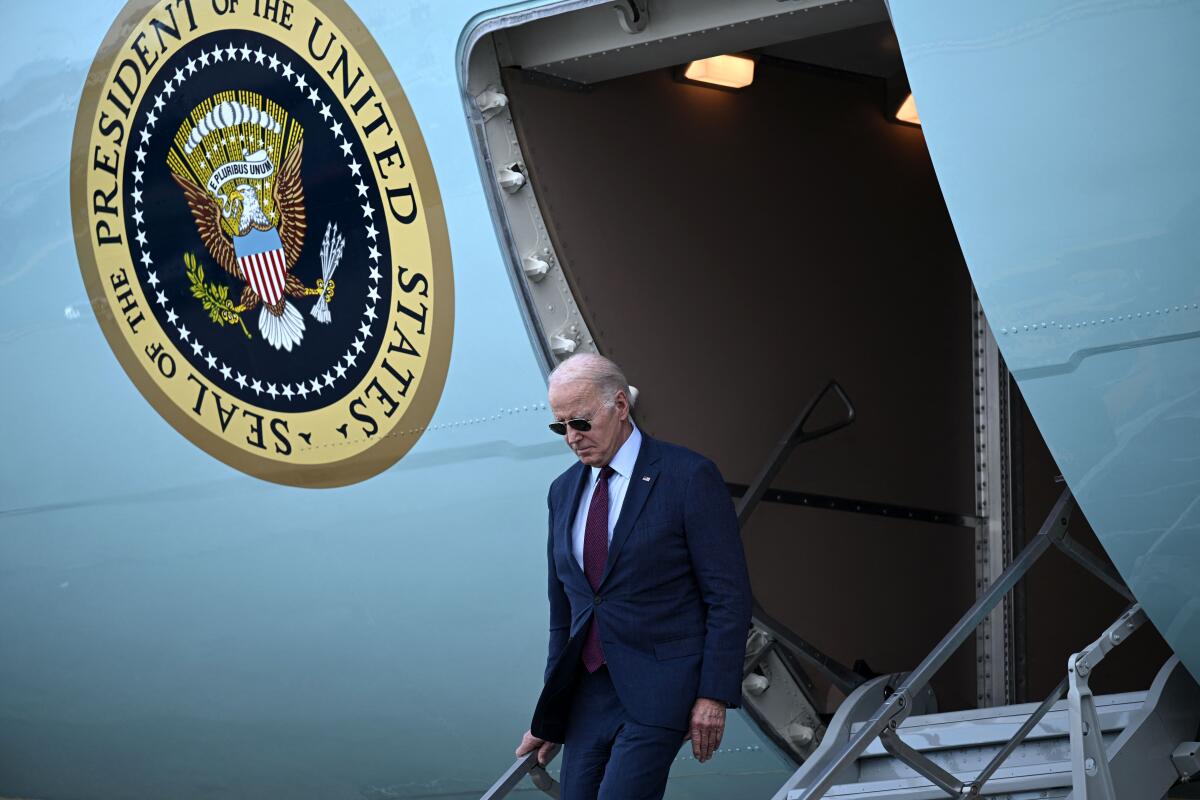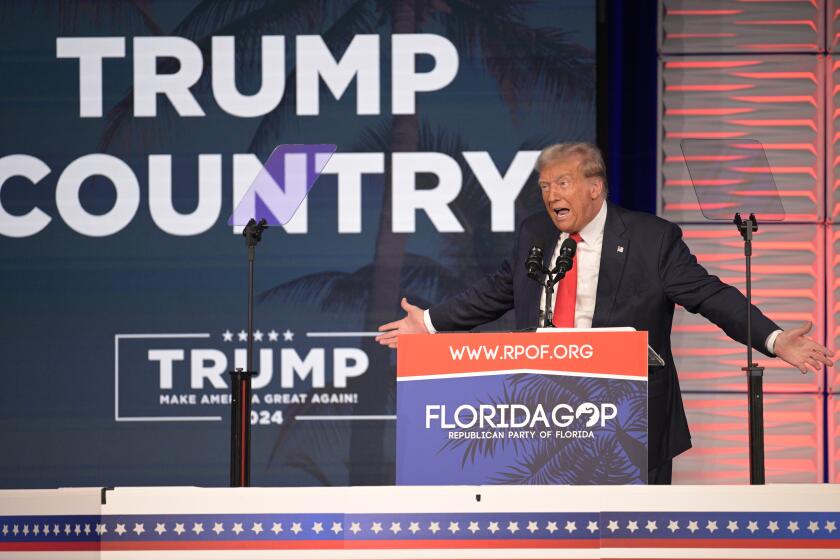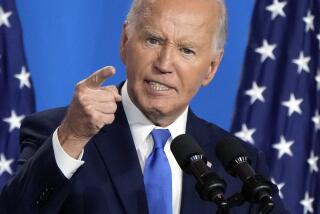Column: Most voters think Biden’s economy isn’t working. Can he change their minds?

WASHINGTON — The news about the economy seems almost freakishly good.
Growth is up. Unemployment is down. Inflation has slowed to about 3%, the lowest pace in almost three years. The Federal Reserve has even hinted that it might cut interest rates, which has sent stock markets soaring.
But this news hasn’t much helped President Biden’s standing in the polls. His approval rating is stuck below 40%; no president has won a second term from so perilous a starting point.
The disconnect isn’t hard to explain. The rate of inflation has diminished, but prices are still high — the sticky hangover of recovery. Wage increases haven’t caught up (not tangibly,at least), so many families still struggle to make ends meet.
And that presents a challenge for Biden and his campaign strategists: How can they persuade unhappy voters not only that better times are ahead, but that he deserves some credit?
The president’s initial strategy was to trumpet the economy’s recovery and point to his legislative accomplishments — an infrastructure bill, spending on technology jobs, negotiations to cut drug prices — as the engine behind it.
He called it “Bidenomics,” but the self-congratulatory slogan fell flat. Some surveys showed that mentioning it made voters grouchier.
With longtime lawmakers leaving the House, Sen. Feinstein’s death and a Californian no longer holding the speaker’s gavel, the state’s Capitol power is at an ebb.
Democrats are understandably alarmed. And the White House is getting free advice from some, including Stanley Greenberg, a veteran pollster and strategist who helped Bill Clinton win the presidency three decades ago.
“What we’re doing isn’t working,” Greenberg said last week. “We need a new strategy.”
In Greenberg’s most recent poll, a collaboration between his Democracy Corps firm and PSG Consulting, a daunting 76% of voters surveyed in battleground states said the country is heading in the wrong direction. Almost two-thirds of those polled said the cost of living was their most pressing concern, far ahead of any other issue.
The ranks of the unhappy included demographic groups that Democrats consider key parts of their electoral base: minority voters, young voters and unmarried women.
“Reciting accomplishments doesn’t move them,” Greenberg warned in a memo. “Democrats talking about this strong economy and things moving in the right direction [sound like they] are talking about a different country.”
Former President Trump has repeatedly made it clear that he will abuse his power to go after his detractors if given the chance with a second term in the White House.
His prescription: “I would talk only about high prices, what we have done and how we are going to help going forward, and try to win the cost-of-living argument.”
That includes sharper attacks on big corporations that have used their market power to raise prices, Greenberg said.
He has other suggestions too, on issues such as the child tax credit, immigration and crime. But the cost of living comes first.
“It’s the only issue for Gen Z, millennials, unmarried women and white working-class voters under 50,” he said.
A study released last week by Way to Win, a group that focuses on mobilizing voters of color, warned that touting abstract economic gains doesn’t work for Democrats, because most voters think Republicans are better at managing the economy. But if Democrats reframe the question as “Which party can be counted on to work for your family’s economic well-being,” they stand a chance.
Is the White House listening?
“I think they are,” Greenberg said. “I think there is an internal debate.”
Biden’s most recent speeches have reflected some modest adjustments. He has mostly stopped referring to Bidenomics. He’s talking less about job creation and more about efforts to rein in prices.
But in a Dec. 9 speech in Las Vegas announcing funding for a high-speed rail link to Los Angeles, he still toggled between talking up his past accomplishments and promising action to rein in inflation.
“America has had the strongest growth and now has the lowest inflation of any major economy in the world,” he said. “But there’s still more to do. We know prices are still too high for too many things.”
A president’s levers to control inflation are few. Biden’s new message focuses on reducing drug prices, outlawing “junk fees” and jawboning corporations — actions that may have limited impact on the economy, but at least allow voters to see him trying.
Aides say he will also urge voters more often to compare his policies to those of his opponents.
“President Biden’s record is in stark contrast to congressional Republicans, who have no plan to lower the cost of living and instead want to reward corporations and the wealthiest with trillions in tax breaks,” his communications director, Ben LaBolt, said last week.
They know they face an uphill battle. “We’re not taking a victory lap,” one senior Biden aide told me.
Time is short. In a presidential election year, most voters make up their minds by midsummer. Biden has six months to persuade them that his economic policies are working better than they think.
The challenge for Biden and his campaign strategists is how to persuade unhappy voters not only that better times are ahead, but that he deserves some credit.
More to Read
Get the L.A. Times Politics newsletter
Deeply reported insights into legislation, politics and policy from Sacramento, Washington and beyond. In your inbox three times per week.
You may occasionally receive promotional content from the Los Angeles Times.













